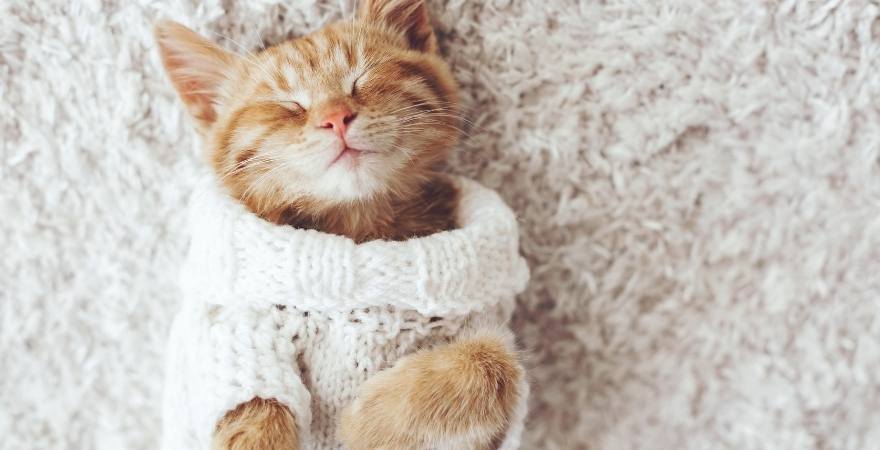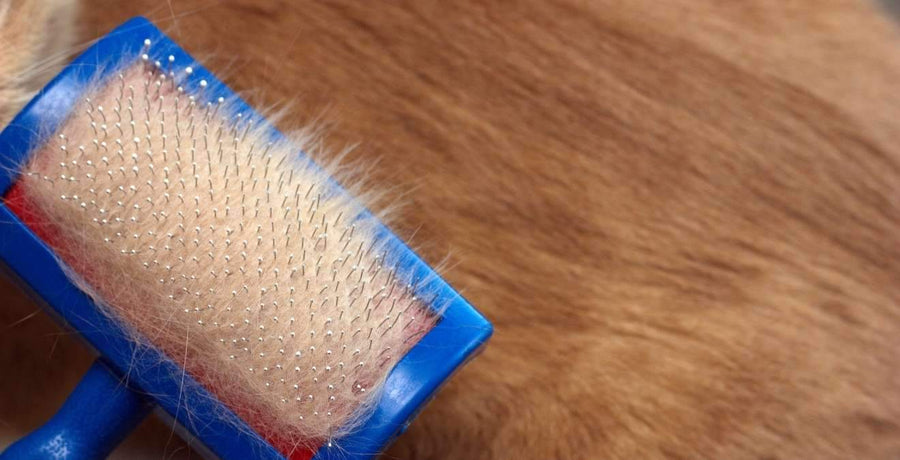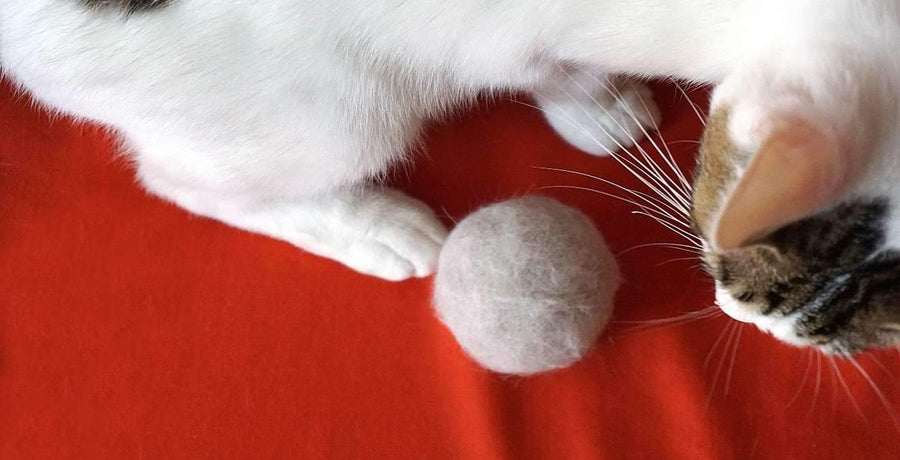Does your cat constantly get hairballs? These hairballs can get stuck and cause many issues. WHie most of the time these balls of hair will either get coughed up or will quickly and easily pass through their intestines. If these do not pass that is when your cat can start to have issues. If your cat continues to get a hairball and has issues, there are many things that you can try at home to help these pass quicker.
How do hairballs form?
When your cat is grooming themselves, they are constantly picking up any loose hair on their body. Your cat has a very rough tongue. This is due to the barbs on their tongue. These barbs are pointing backwards into your cat’s mouth. Any hair that your cat picks up when they are grooming will quickly and easily be swallowed.
If there is just a small amount of hair, it will easily pass through your cats intestinal tract and pass out in the feces. If there is a large amount of hair, this will form a hair ball.
Are Hairballs in Cats a Health Issue?
As long as your cat only ingests a small amount of hair, this is not an issue. When our cat eats a large amount of hair this can cause your cat to have a few health issues. You should try to monitor your cat when they are grooming to make sure that they do not get any hair stuck in their mouth and need help getting it out.
Can Hairballs Be Dangerous?
Hairballs can be dangerous in cats. These are three health issues that your cat can develop due to hairballs
- Intestinal Obstruction: Your cat’s hair can form balls in their stomach. As these try to move through they can get stuck along the way. If they are very large they will not be able to pass and cause an intestinal obstruction. Many times these obstructions will have to be surgically removed.
- Upper Airway Obstruction: If your cat licks off a hair mat, they can cause an upper airway obstruction. This could be a life threatening issue if not treated right away. These obstructions can make it hard for your cat to breath and could even block their trachea causing them to suffocate. If you think that your cat has a hair ball stuck or is having trouble breathing due to a hairball. You can swipe your finger in the back of their throat to help dislodge the hairball
- Hepatic Lipidosis: Hepatic Lipidosis is also known as fatty liver disease. This is caused by fat being broken down in your cat’s body and stored in their liver. THis occurs when your cat does not eat. Hair balls can cause your cat to not want to eat. These hairballs make your cat feel like they are full or cause them to be nauseated and not want to eat. If your cat does not eat, they can develop this condition. Fatty liver disease should be treated right away by your vet.
How to help your senior cat pass a hairball
Hairballs are not more dangerous for older cat than younger cats but senior cats may need a little more help getting these to pass. SInce they are older they usually are not as active and their GI motility is slower than a younger more active cat. If you have an older cat these are some things that you can give your cat to help the hairballs pass easier:
- Hairball diets: Feeding your cat a hairball diet will help hairballs move easier through your cat’s intestines and also prevent them from forming in your cats stomach.
- Hairball treats: Hairball treats are a great way to help your cat pass hairballs without having to change their diet. Older cats may have other medical issues and need to eat a special diet. Giving them a hairball treat will allow them to stay on their medicated diet and help them with hairballs.
- Frequent brushings: Older cats tend to not groom as much and may need their coat brushed more often. Try making sure that all their mats are brushed out every day. This will help prevent these mats ending up in their intestines.
Do furballs ever need veterinary treatment?
If your cat can quickly and easily pass these hairballs, then you do not need to see your vet. In a few cases, your cat will need to see your vet because of these hairballs. Intestinal or upper airway obstruction will need veterinary attention. If your cat continues to vomit or cough up hairballs it is also best to see your vet before these issues develop into something more serious. These are a few reasons that your cat would need to see a vet:
-
Your cat is coughing up hairballs frequently
If your cat is constantly coughing up hairballs, it would be best for your cat to see your vet so that they can prescribe your cat medication to help prevent these hairballs and prevent any serious issues from happening due to hairballs.
-
Your cat is vomiting
Vomiting can be a sign that your cat may have a hairball stuck. If your cat is vomiting and not eating, then it is time to see your vet. They can examine your cat to see why they are vomiting and see if this is possible due to an intestinal blockage due to hairballs.
Final Thoughts
Hairballs can cause a few medical issues. While it is not very common that your cat would ever have an issue due to having a hairball, it can happen. Watching for signs of obstruction in your cat such as vomiting and getting your cat to the vet as soon as you realize that there is an issue will be best. Many times the best way to treat your cat with hairball issues is to prevent them from happening in the first place. Trying these few tips and tricks will help decrease the hairballs from forming in your cat and help keep your cat healthy and happy for many years.
Dr. Sara Ochoa, DVM
Veterinary surgeon, LinkedinSara Ochoa, DVM graduated from St. George’s University Veterinary School in 2015. Since then, she has been at a small and exotic animal practice in Texas. In her free time, she loves making quilts and spending time with her husband Greg and their 4 fur kids. Two dogs, Ruby a schnoodle, and Bug a Japanese Chin, one cat named OJ and a leopard tortoise named Monkey.




